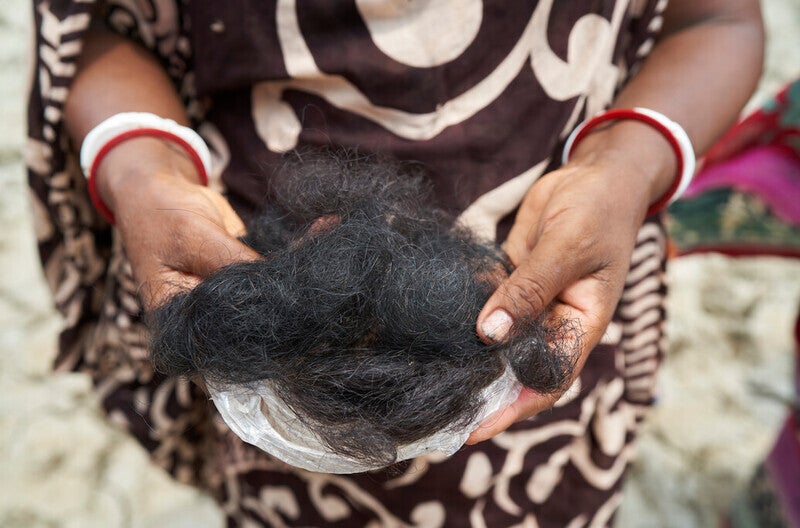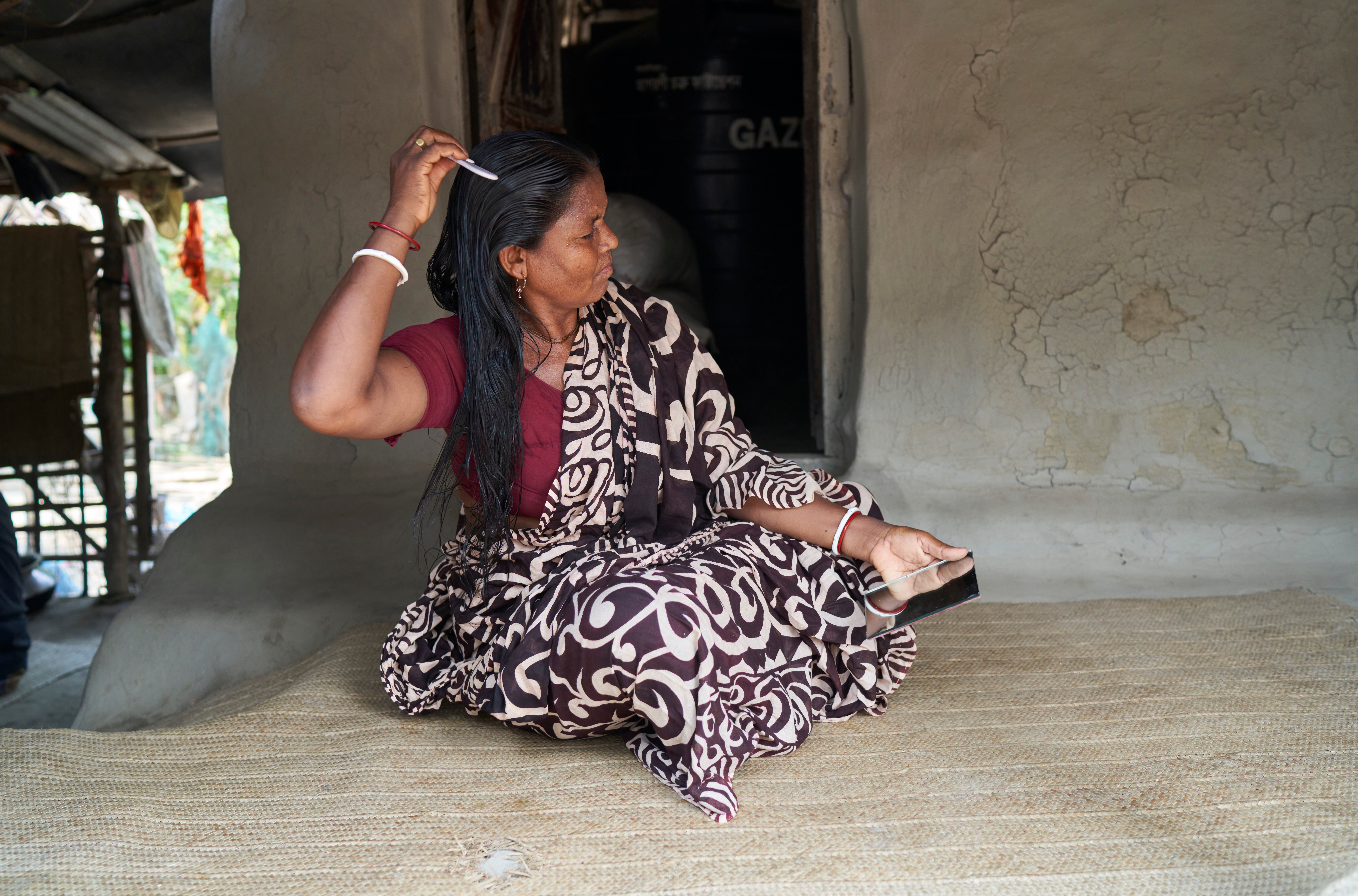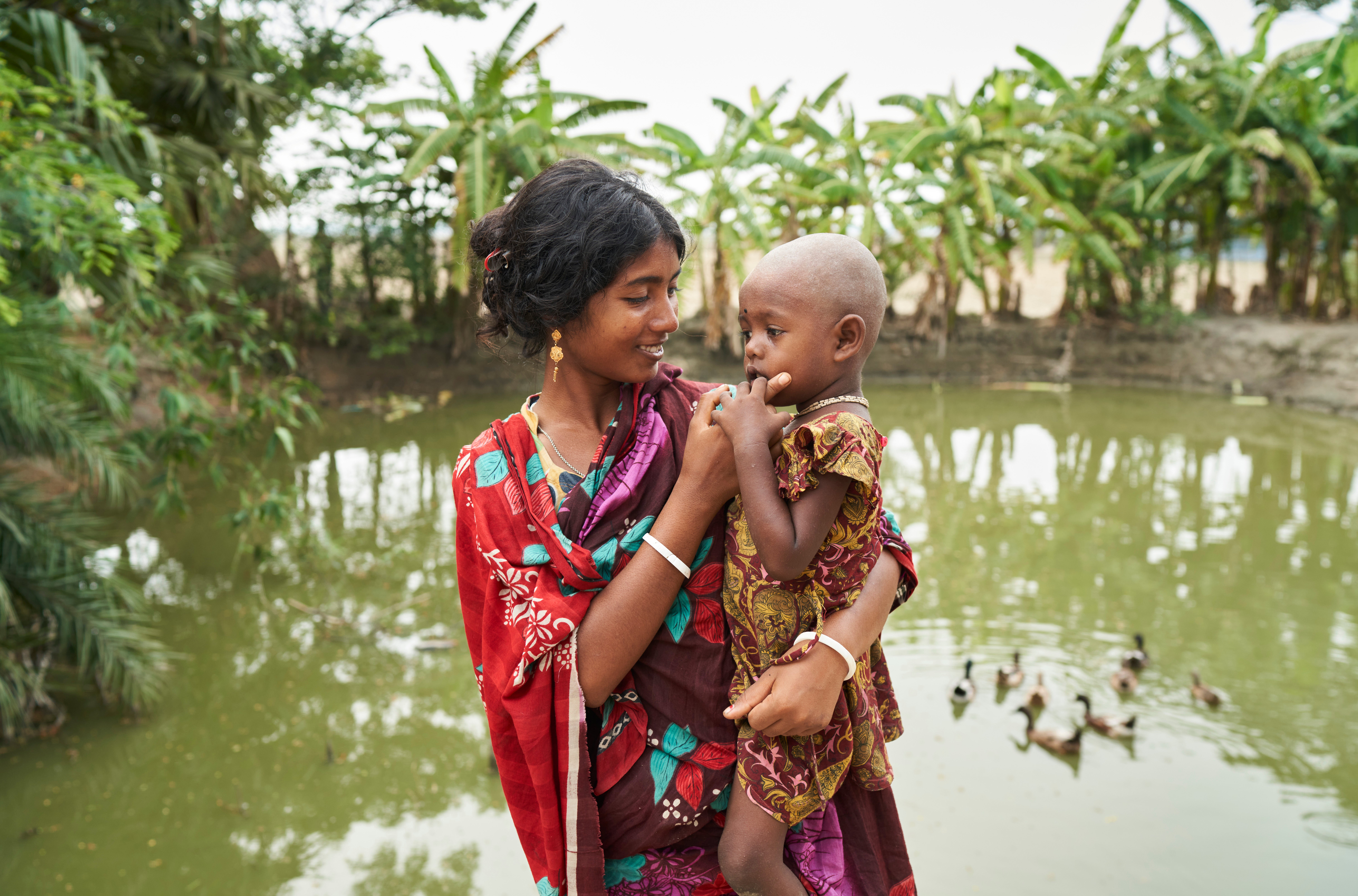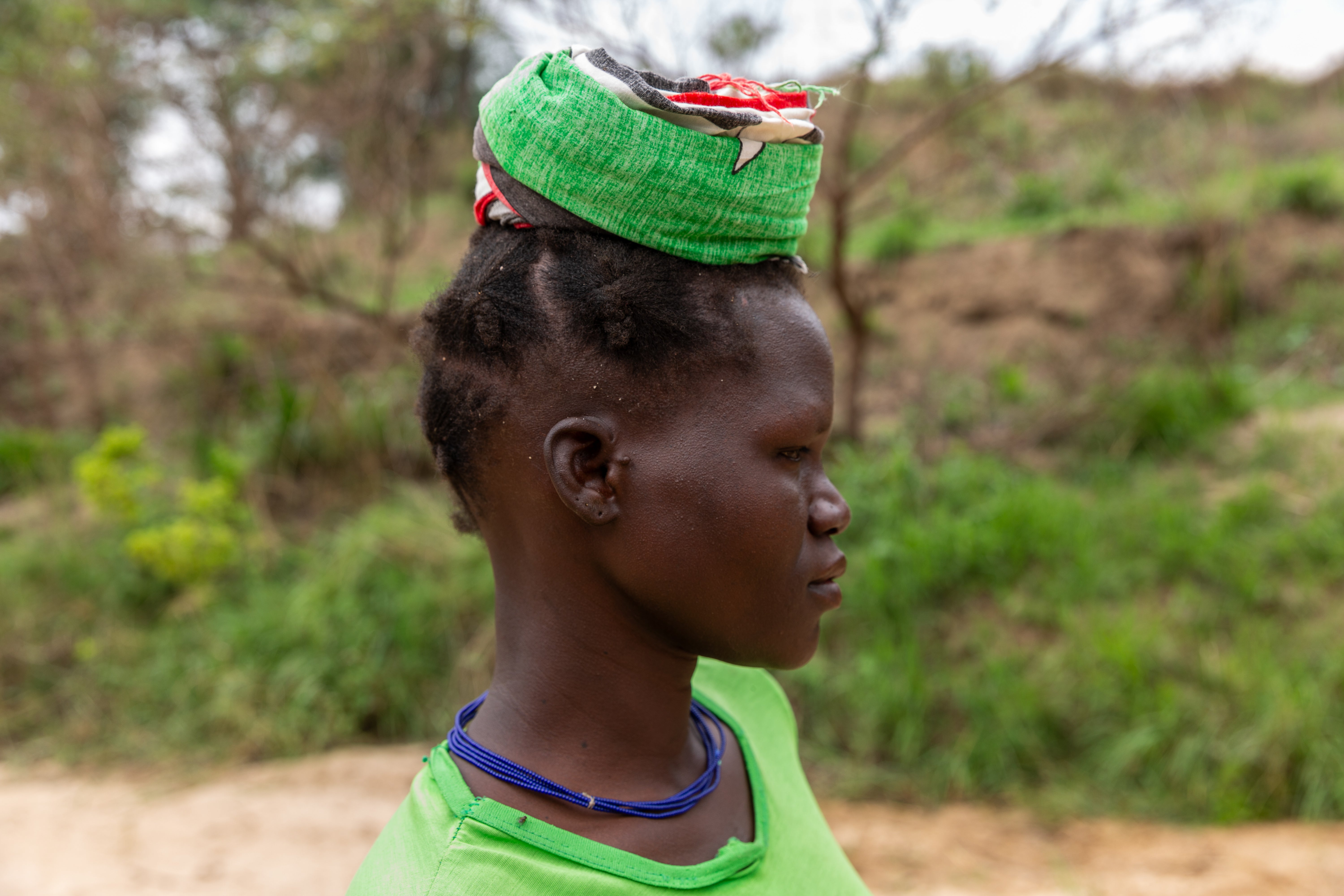The women losing their hair because of the climate crisis: ‘It’s everything to us’
With clean water a precious resource, women are bathing in saline and polluted pools, which is not just causing infections but is also robbing them of their hair. Stuti Mishra reports


Your support helps us to tell the story
From reproductive rights to climate change to Big Tech, The Independent is on the ground when the story is developing. Whether it's investigating the financials of Elon Musk's pro-Trump PAC or producing our latest documentary, 'The A Word', which shines a light on the American women fighting for reproductive rights, we know how important it is to parse out the facts from the messaging.
At such a critical moment in US history, we need reporters on the ground. Your donation allows us to keep sending journalists to speak to both sides of the story.
The Independent is trusted by Americans across the entire political spectrum. And unlike many other quality news outlets, we choose not to lock Americans out of our reporting and analysis with paywalls. We believe quality journalism should be available to everyone, paid for by those who can afford it.
Your support makes all the difference.Women in south Asia are becoming silent victims of an alarming side effect of the climate crisis as sources of clean water for drinking and bathing become more and more scarce – the loss of their hair.
In the coastal regions of Bangladesh, where over half of the water is tainted with salt and pollutants, women are walking back-breaking distances to fetch slightly safer water for drinking.
But with clean water being such a precious resource, women are bathing in hard water, which is not just leading to infections but is also causing them to lose their hair, laying bare the deeper wounds inflicted by the climate crisis.
In the Satkhira region in southwestern Bangladesh, where residents rely solely on rice crops and fishing for their livelihood, women say they are losing hair at an alarming rate. Some are worried about premature baldness, while others are selling their hair to vendors in an attempt to make ends meet.
“Women in the Satkhira region are living without the basics of clean water, decent toilets, and good hygiene, and the climate crisis is making it worse,” Anindita Hridita, programme lead on climate resilience at WaterAid Bangladesh, tells The Independent.
“They say continued exposure to contaminated water sources is not only causing dangerous waterborne diseases but also robbing them of their hair, an added layer of injustice in an already dire situation.”
Hridita and her team travelled through the region for days, collecting stories from women in the villages of Satkhira who are suffering through the multifaceted effects of the climate crisis.
“The water I bathe in causes my skin to get very dry, and I often get blisters,” shares Shyamoli Munda, a rice and fish farmer from Bhetkali village in Satkhira. “The blisters sometimes get so dry they bleed.”
Shyamoli says she has lost so much hair in recent years that she fears going bald.
“Every day I am getting lots of hair falling out, almost a handful,” she says. “It comes out whenever I comb my hair. As a woman, hair is everything to us, so whenever I lose hair, I feel insecure about going bald or something.”

Scientific studies show that hard water makes hair and skin dry and weak. However, the extreme exposure these women have daily to saline water is causing more severe effects.
In Satkhira, where salinity is higher, women who move in from other areas see more rapid hair loss. Hridita says the women who had moved to the village after marriage told her that, if earlier they were losing one handful of hair, now they lose double the quantity.
“We use pondwater for showers and washing. The water is not good, but there is no alternative,” says Jhorna Munda, a 22-year-old resident of Bhetkhali, Satkhira. “I’m scared that I won’t have any [hair] eventually.”

The narrative of hair loss extends beyond aesthetics, holding deep cultural and personal significance. Hridita says the issue “deeply relates” not just to women’s mental health, but also to their standing in society and even their future.
“In south Asia, before arranged marriages, the groom’s family comes to see the potential brides, and the women are showcased with all their beauty and confidence,” Hridita says. “It is very important to have hair.”
While the issue affects men, too, Hridita says they did not seem as bothered as the women about their hair falling out. But for women, it represents a loss of their identity.
The issue is not limited to Bangladesh; in the arid regions of Uganda, women are facing similar challenges. “Since we get water from far away, I only use a little water to wash my hair. As a result it is not thoroughly washed clean at times,” says Lina Lokol, 30, a mother of six who lives in Ariamaoi village in the Karamoja region of Uganda.
“My hair keeps breaking because of my daily household chores. I keep my hair clean and neat to fit in[to] society. Here in Karamoja, if a woman has shabby hair, people laugh at her; they may think she is a madwoman. And if you shave off your hair, people may think you have lost your husband.

“When I have unattended hair, I become a disgrace to my husband, and he may even abandon me for other women who are more beautiful and have well-plaited hair.”
In most houses in rural Bangladesh and Uganda, women are responsible for fetching the water. They are undertaking arduous journeys, covering long distances to collect drinking water for their families. With whatever they fetch in their jerrycans, household chores take priority, and their personal hygiene and hairwashing take a back seat.
“When I go to collect water, I take a kolosh (jug), which holds 10 litres of water. I’m afraid of the walk,” says Lina. “The roads are not very safe and I’m afraid I’m going to trip and fall, especially when it’s dark.
“I find the walk very physically straining. The kolosh has to be carried on my side, over my hips, so it’s very straining on that part of my body.”
Some women have also started selling their fallen hair. South Asia has long been a hub for the hair trade. But hair, which was once obtained as a donation, has now become a way for Bangladeshi women to make some money.
“I’m selling my hair to buy groceries,” says Shyamoli, a mother of three, whose rice crops have been suffering due to extreme weather. “I feel bad about it, but what can I do? There is no other way to get the groceries. I sell my hair for 600-700 Taka (£4-£5) each time.”
Hridita says that this has become common practice in the community. “If these women had access to clean water their lives could have been a lot easier.”
She says her team at Water Aid is helping women to collect water through rainwater harvesting, but a lot more work needs to be done to make clean water available to women, who are often the last people in their families to be allowed to use it despite being the ones who fetch it.
Join our commenting forum
Join thought-provoking conversations, follow other Independent readers and see their replies
Comments